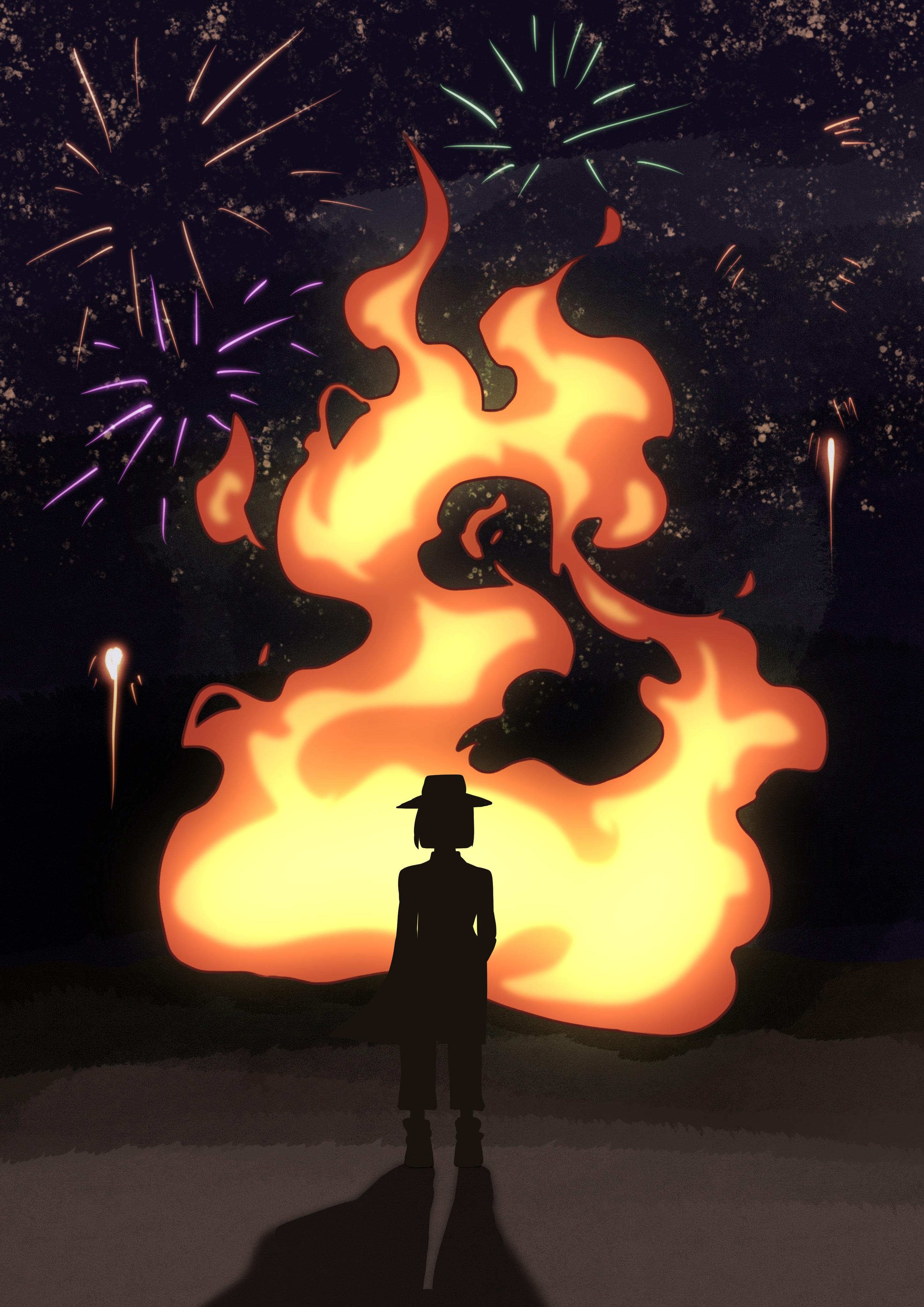

indigo@palatinate.org.uk



indigo@palatinate.org.uk
Therehave been many famous independence speeches throughout history, made by people far more eloquent and articulate than me, and it is unlikely that this editorial will join them. I’ll be surprised (pleasantly, but still) if this manages to convince anyone that is not already convinced, but we will not go quietly into the night. In the face of the momentous issues facing the world now and the fine words written by my friends elsewhere in this edition, this may amount to little more than spilt ink (and I am certain that is what our detractors think of us). But crucially, it is ink with power, and that is why these words, and the issue at hand, are so important.
As you are probably aware, if you have glanced at the first few pages of this edition, we consider Palatinate’s existing relationship with Durham Student Union to be untenable. We understand this is a significant and lasting change to the paper but believe it to be a necessary one. Like a bad marriage, the divorce proceedings have already been costly, with a fundraising effort necessary to replace formerly SU-supplied funds. Our proposals and plan for independence have not been rushed. Plans have been developed by successive teams over two years.
It is also a decision catalysed by the SU’s decision to file a trademark against the paper’s name without the knowledge of our paper’s Editors-in-Chief. Ours is a brand identity painstakingly forged over nearly 75 years, including some of the most well-known figures in British Journalism – including Jeremy Vine, George Alagiah and Sir Harold Evans. Indigo has also been an incubator for some of the British press’ leading journalists – for instance, Sebastian Payne of the FT was a past Music Editor. As we are all students involved in running the paper, there is limited institutional memory as students graduate and move on to pastures new. Despite this, the attempts of the SU to pry our paper away from us will not be forgotten.
It is this act, one of many made by the SU, that is so particularly capricious in its callousness, so self-sabotaging, that it defies explanation. Palatinate
Books (Page 3), Visual Arts (Page 4), Travel (Page 5), Creative Writing (Pages 6 & 7), Film and TV (Page 8), Style (Page 9), Food and Drink (Pages 10 & 11), Stage (Page 12), Interview (Page 13), Features (Page 14), Music (Page 15)
Indigo logo: Adeline Zhao
Cover image: Victoria Cheng
Closing image: Anna Kuptsova
is one of the most visible institutions that Durham possesses (I often see students walking to lectures on Thursdays and Fridays with a paper in hand), as being well entirely student-led and student-run. Local people and students alike recognise the vital work that Palatinate does. Continued management by the SU represents an existential threat to our reputation, as well as our ability to continue to hold the University, Durham SU and the many other stakeholders in Durham life to account. In journalism, accountability and transparency are the most important things. It’s why we have decided to devote so much of this edition to this issue. The people who make Palatinate are not Durham SU, they are unpaid full-time Durham students: editors, reporters, contributors, and illustrators who labour over every edition, five times a term. Simply put, Palatinate belongs to them. It is a further indictment of the SU, which has been found by this very paper to be the worst students’ union for representing students’ academic interests for consecutive years running, that they are sabotaging one of their biggest assets because they are afraid of a little transparency.
Indigo is an important arrow in the quiver of Durham’s cultural scene, and our continued existence is inextricably and irrevocably tied to that of Palatinate. Our position is clear: Palatinate will become an independent newspaper and leave Durham Students’ Union.
of the week by Victoria Cheng
Samuel Lopes, Miriam Mitchell, Melissa Rumbold, Amy Whitaker, Cameron Beech, James Macfarlane, Ruhee Parelkar, Annie Pickup, Ella Al-Khalil Coyle, Lizzie Buckley, Theo Mudhir, Caitlin Ball, Agnes Shu, Lara Moamar, Emilia Williams, Eve Kirman, Millie Adams, Izzy Tighe, Roshni Suresh Babu, Lily Lake, Lydia Doye, Annabelle Bulag, Tom Benns, Alexa Thanni,Charlotte Grimwade and Alice Purves

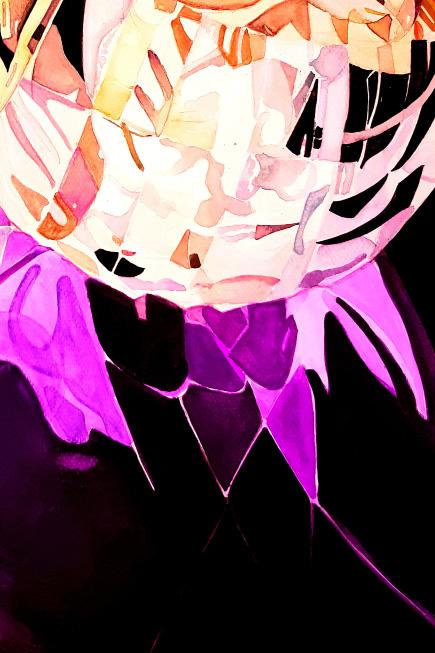
www.palatinate.org.uk
Follow our socials
Facebook: www.facebook.com/palindigo Instagram: @indigo.palatinate
Have a question, comment or an article idea? Email us at indigo@palatinate.org.uk or any Indigo section email address

Itseems that hardly a week goes by without J.K. Rowling, the formerly beloved children’s

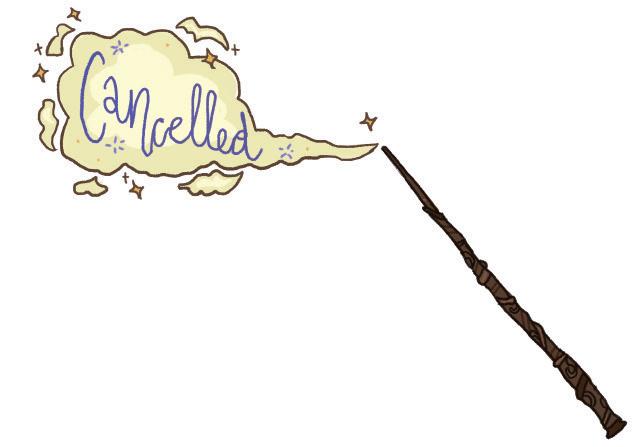
good publicity, then it’s difficult for a reader to continue reading
‘problematic’ writers. It’s a complex debate, bringing up issues of freedom of speech and ‘cancel culture,’ that touches a nerve with many people.
Many find it difficult to ignore the personal views of authors we read, putting readers in an uncomfortable position. This is more relevant today than ever: in the past the personal views of authors were - if not obvious in their works - confined to private letters and other material largely inaccessible to the general public. Now, in an unforgiving digital age, everything is online, easily accessible, and often shouted onto Twitter by the authors themselves. The pervasiveness of social media means that we always know what everyone wants to sayeven when we don’t want to hear it.
Part of the debate also includes where we draw the line: what views in artists can we tolerate, and what are too far beyond the pale? In
The trouble is what to do when confronted with an author whose personal or political views are completely repellent to you. The issue with letting your moral beliefs dictate your reading taste is that a huge number of writers, throughout the centuries, have been really terrible people - and that the further back in time you go, the less likely your morals are to align with those that you read. To name just
the transgender community, particularly in the UK, where transphobia is on the rise. At this point, it’s become less about a simple divergence of opinions and more about standing against hatred and bigotry, including by refusing to financially support it. It’s like with Kanye: several years ago his wacky comments were just the rants of an outof-touch celebrity. Now his dangerous antisemitism and support for white supremacy are likely to have real-world consequences. People who like his music may now find it harder to separate the art from the artist, given the artist’s

It’s hard to come up with a simple answer to the question of how - or whether - to engage with the works of ‘problematic’ artists. It’s natural for the distaste we have for someone’s personal or political views to influence our willingness to engage with their art. Equally, there’s something to be said for suspending judgement on someone’s personal life and views in order to just enjoy their work - it’s certainly much easier.
author of unpalatable views is struck off the reading list, then you miss out on some truly incredible works of literature.
But we often make a moral distinction between classic authors like Woolf and those who still make a living from their work. Dead writers no longer profit from engagement with their art, which is not the case for writers like Rowling, who views her continuing royalties as endorsement of her personal beliefs. The idea of giving financial support to authors like her is repellent to many; but is borrowing from a library any better? If any publicity is
Importantly, choosing not to engage with the ‘problematic’ doesn’t translate to ‘cancel culture’ - having the right to speak doesn’t grant the right to make everyone listen to you. What you read is ultimately down to personal choice, whether that means engaging critically with ‘problematic’ work, fully rejecting it, or choosing to dismiss cultural ideas of the ‘problematic’ entirely.
The trouble is what to do when confronted with an author whose personal or political views are completely repellent to you
is good publicity, then it’s difficult for a
Importantly, choosing not to engage with the ‘problematic’ doesn’t translate to ‘cancel culture’ - having the right to speak doesn’t grant the right to make everyone listen to you
visual.arts@palatinate.org.uk
DurhamUniversity’s Student Art Prize launch party on 2 November served as a reminder as to why I chose to be a Visual Arts editor. From artist workshops to speeches delivered by guest speakers, this event was nothing short of admirable in the way it championed student art and artists from across all departments, backgrounds and specialisms.
The option of both in-person and online tickets for this event reinstated the prize’s pursuit of inclusivity and accessibility, spreading the message of this initiative far and wide.
Richard Roberts, the prize’s founding sponsor, delivered an illuminating speech in which he spoke of the intention to create a space where student artists can flourish and not be overshadowed by traditionally academic practices. The potential of being displayed alongside professional artists is a sentiment which proves Durham’s student artists’ talents are appreciated and valued.Hearing speeches from guest speakers on what Sanctuary means to them extended the conversation further, covering both the values of art and the artists themselves.
Jill Cole, director of ‘Northern Heartlands’ spoke about the charity’s work, where they provide a free and safe space for vulnerable people to open up and explore their creative potential.
Claire Webster Saaremets, artistic director and founder of ‘Skimstone Arts’, took the conversation towards the need for diversity. She spoke about the organisation’s aim of supporting marginalised artists, creating a space in which they feel included within the art sphere.
Overall, the launch party affirmed that student art matters, and I have no doubt that there will be a selection of absolutely sensational works derived from the theme of Sanctuary.
“I am particularly excited about this year’s theme as I believe it may be the first truly non-visual prompt we have had. Heroism came with the baggage of motifs and propagandist symbols, whilst Hidden demanded some consideration of visual exclusion. By comparison, Sanctuary seems truly abstract, emotionally charged but still open to limitless visual and material realisations.”
Afterits launch in 2019, Durham University’s Student Art Prize is now in its fourth year. The initiative was set up to expand artistic opportunities within the university and to build a new permanent art collection.
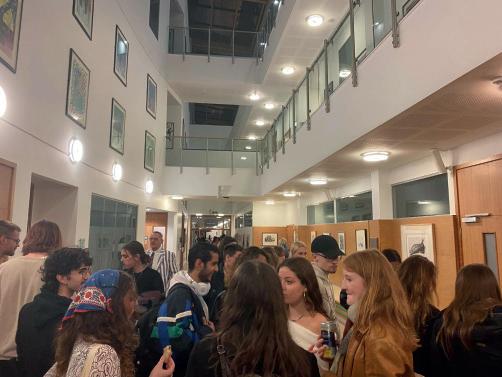
In a university which doesn’t teach fine art, the Student Art Prize is hugely important as it provides students with the ability to exercise their artistic skills and explore various creative outlets.
“Creating art is a solitary and isolating pursuit. Experimenting and producing work can often seem more akin with academic routine than the hyper-social activities of sport and theatre that usually make up university life. Consequently, the Student Art Prize plays a fundamental role in allowing students to communicate their unique creative outlooks through a shared field, responding to an abstract theme in any way they see fit.
I hope this year’s judges continue to celebrate experimentation, even in its scruffiest and most rudimentary forms. Through doing so, those with limited art materials will be allowed access and more people will be able to engage with the competition.”
As someone who has submitted work in the past, what advice would you give to prospective applicants?
“I would encourage this years students to not let their own tastes be concealed. The theme is merely a starting block for creative expression. If you’re interested in applying, you should not censor your work in the fear that you are not articulating what you think the judges want to see.”
Alix CollingwoodSwinburn, Curator“As a university that doesn’t teach practical art through our formal education programmes, our annual Student Art Prize was initiated in 2019 to support student creativity, providing a platform for access to art.
The Art Prize is open to any Durham student; I speak to so many students who wouldn’t view themselves as artists because they are studying an academic subject. We want to break down these barriers and provide a space for creative development and support.
Most importantly, the prize (and our free ‘Art School’ programme of talks and artist workshops) offers students a unique opportunity to develop their artistic practices, share and learn with other artists, exhibit in a curated exhibition, and potentially win cash prizes.”
Each year, the prize has adopted a different theme which not only gives the student applicants a focus in terms of subject matter, but also a starting point on which they can develop their concepts aand work. This year’s theme is “Sanctuary”, but in the past, themes have included “Diversity”, “Heroism” and “Hidden”. Further details can be found on the Student Art Prize website
VisualÆlfred Hillman, President of Durham UniversityArt Society, 2022/23
Why is it important to champion student artists?
travel@palatinate.org.uk
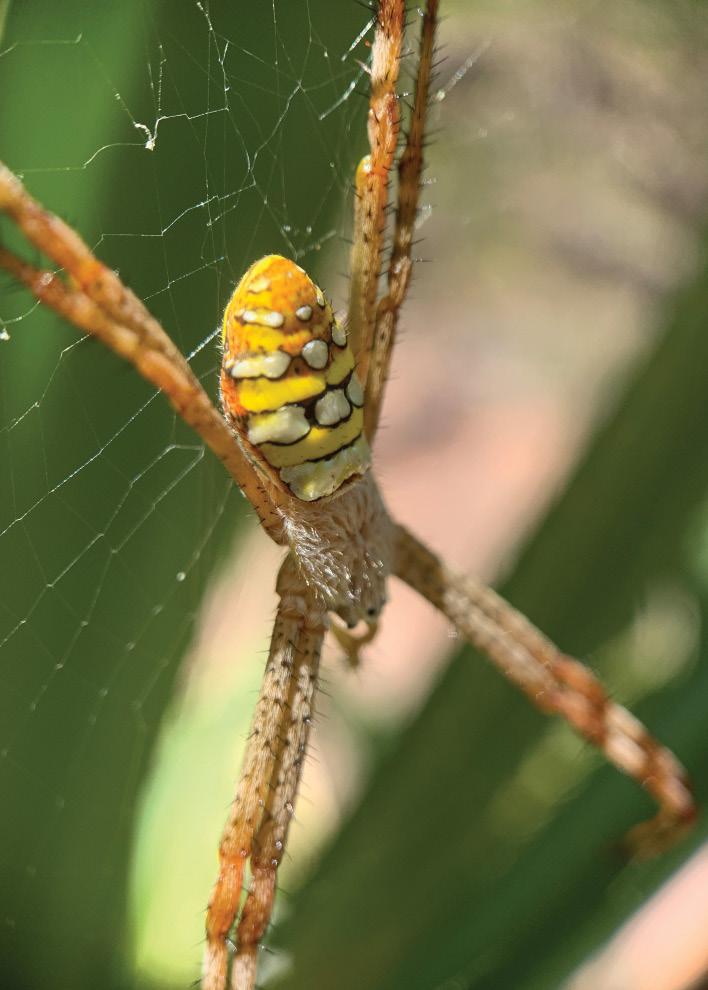
Asamazing as a relaxing beach holi day can be, for me, nothing beats an adventurous week away with times where you genuinely question your safety and your sanity.
and physical sense. Why not start the morning at 5am in order to beat the heat and test your fitness by hiking through King’s Canyon which starts with a 500 step climb aptly named ‘Heart Attack Hill’ by locals?!
before you even start exerting energy. If these two things seem a little too much, then there are some amazing tree-top zip-lining routes you can go on, as well as plenty of big animals to come face-to-face with. Nothing gets your heart racing like being stared down by a seventonne elephant.
An obvious choice for me when it came to ad venture, especially the water-based kind, was Australia. As soon as you step off the plane, the country delivers danger even if you aren’t looking for it just by throwing numerous dead ly animals at you. From there, in my opinion, you should head for the coast and experience all that Australian beaches have to offer. You can go surfing (my attempt was cut short by sharks in the water), snorkelling (watch out for the sting rays which seem to appear from nowhere) or scuba-diving (who knows what creature will come and say hello, for me it was an overly friendly Maori Wrasse). Or, if you really feel up to it, you can go cage-diving. I chose to spend a morning in a Perspex tank surrounded by a 5m saltwater crocodile and loved every second of it, despite my incred ibly raised heartrate as he decided to hit into the tank with as much force as his 750kg self could muster. Of course, as well as the amazing water-based activities, there is plenty to do on land. A lot of the hiking which I did as I trav elled around was breathtaking in both a literal
If you are in fact searching for a more adrena line inducing holiday, I cannot recommend South Africa enough. In my opinion, the two challenges to get your heart racing the most are bungee jumping and extreme caving. My ex perience of bungee jumping or ‘aiding death’ as my brother so kindly put it was an inter esting one to say the least. We were at the fourth highest bungee jump in the world, on a random bridge which still had cars driving over it, there was a live DJ playing, and apart from that, when you actually jumped off the bridge, you weren’t attached to anything. De spite the slightly unsafe feeling which came with the whole situation, it was incredible, and I would highly recommend for anyone who wants an insane spike in their adrenaline levels. If heights aren’t your scene, then why not go the opposite direction and go extreme caving. Cango Caves is South Africa’s oldest tourist attraction and an awe-inspiring experi ence from start to finish. Who wouldn’t’ want to climb through the Devil’s Chimney and the
If you are looking for something a bit closer to home, then Slovenia is a real favourite of mine. I am yet to go to a country where the views are so awe-inspiring no matter which direction you look, with mountains, lakes and forests. These forests are home to the highest density of bears in the world which I was not aware of until my tour guide dropped this fact after we had walked through them. There are also op portunities to go canyoning, white-water raft ing, mountain climbing or even more caves to explore, look out for the ‘baby dragons’.
ways adventure to find, but for me, these three
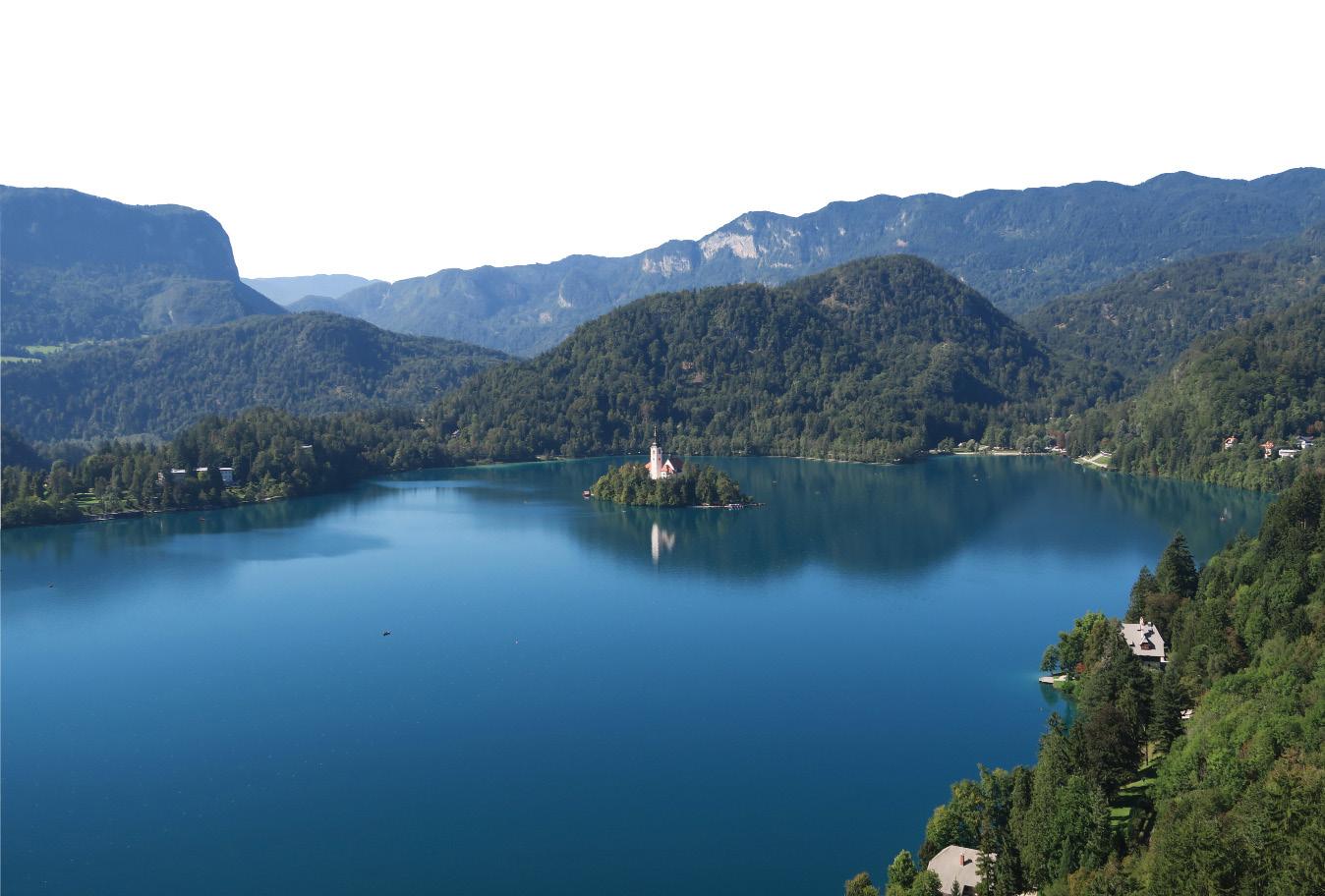
Sophie Little shares her favourite destinations for an adventure to treasure and remember
The hiking was breathtaking in both a literal and physical sense
The views are so awe-inspiring no matter which direction you look
creative.writing@palatinate.org,uk
You release me into a world That will try to strip me To my organs You expect me to behave The same way I always have Then you complain
Oh why are teenage girls So hard to love and control After spending my childhood Blind to what my body sold To deviant minds You take me out to view The way my body isn’t mine
You are shocked to see me bleed
I finally get to see how I have no place at all
In a world I thought I lived within But am just expected to uphold The burden of our womanhood You expect us to drag around Don’t you expect us to misbehave?
All this time our innocence Has been coerced behind our backs Our whole ignorant lives
Now we have to walk on Knowing that all we do Will be warped in the male view Nicole Longstaff
Body of work Body of questions That screams Like my organs
Sealed lips
A lab rat, Willing Staining sheets
The colour of woman. Laura Gibbs
Content warning: The following poem has themes of self harm / disordered eating that some readers may find distressing.
How lucky you are to be able to throw away all of that Bitterness, Suffering, Woe. Blink, Spit, Wash it away and you’re Clean.
If I could’ve let my Fall sink low into the hands of the Devil, Don’t you think I would’ve done the same?
I crave to gain your pain; I’m marred by mine.
I was not 19 when I lost my innocence, My girlhood was mine to shatter and scat ter –
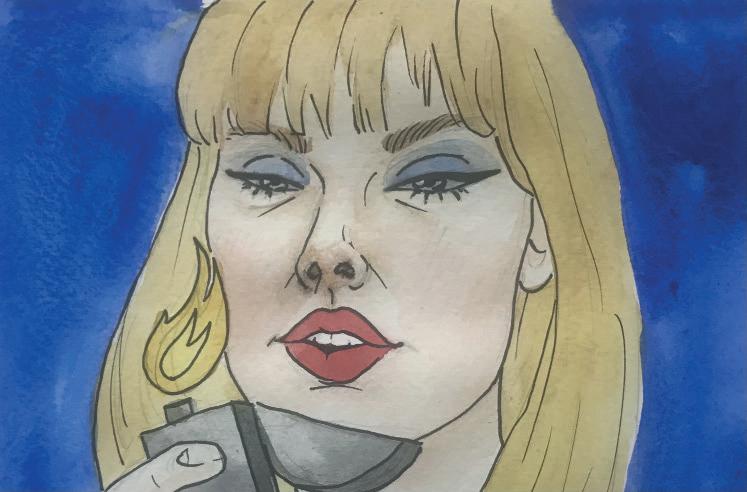
I threw it away.
I ripped myself apart, not some man who should’ve known better.
I was just a girl and I’m rooted in my own ruin.
The serpent who seduced sweet fruit down my throat, who raised me off my knees and drowned me in the flood, The problem I’ll never fix - It’s me.
I unfurled my banners and sent out my battle boats, I starved myself away, I slashed my skin and watched red drip down into decay.
But it wasn’t like fighting Him: Wound the abuser and you wound the abused.
The civil war was tragic. Anxiety threatens me awake at first light, once the midnight magic has run away into folklore. There’s no creation in my obliteration. I regret me all the time.
He put you up here, Heavy with all his vices. But it was you who became our salvation Your grief that cleansed us. I’m the unrepentant thief - I crucified myself.
The Anti-Creation, a girl left to her own devices.
I Could’ve Been My AntiHero
creative.writing@palatinate.org,uk
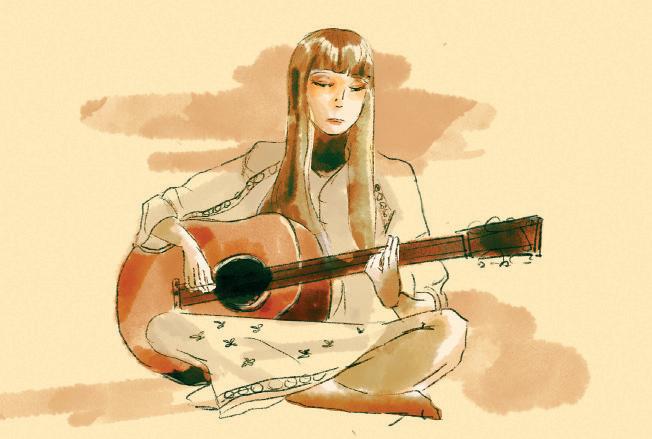
I could’ve drunk a case of you, but I was already weak at the knees. my deliberate voice slurred, my unfaltering vision blurred
til I saw more than one, two, even three of you maybe four. you were everywhere, everything my skin, my bed, my floor
you need never have told me you loved me we both know I never was much more
than a mascara stain on your pillowcase a salty smudge, translucent, grey, not quite enough to even just slightly obscure your pathetic, enduring pride, I was not quite enough to make you stay.
let me leave, please with my doggy bag of shame. scraps and shreds and slashes of what you returned back to me, of me, that day
let me leave now, loosen that white-knuckle grip. your persistence pervades me, your eyes dart and evade me look away, you’ll never see me trip.
you’ll find me at the bar sat drinking a case of my own tears, my blood constant as a northern star blazing amidst a silken indigo hood the only constant in your darkness a piercing, burning, white-hot scar
I hope it stings you, when eventually you look up to the sky. that’s where I’ll be embroidered into earth’s fabric a figure-of-eight platinum tie
a white gash on the ice’s surface the river was meant to freeze that day. you cast it cold to pierce my skin I cast it frozen to skate away.
Elizabeth Buckley
I miss the clouds and their kindly shade, That clean white linen in which I spent years swathed, neither burnt by the sun
Nor chilled by the snow. If sun shone It beamed over fields Framed in clusters of crocuses, As I did the same to invite the click of a camera
In her freckled hands echoing over feather canyons
As we dove among the tall grass. If snow fell it trickled in droplets From fuzzy fingertips lolling over radiators Lined with knitted hats, scarves, gloves. My hands, pink and stiff with cold, swept up
In his, rubbing them together and dipping his head
So that tides of warm breath might thaw those icy digits.
I would not squint and I would not shiver And now my retinas are scorched and my skin frostbitten
And I hate the clouds.
That thick, fibrous shelter beneath which I cowered in the dark, Now worn and laddered, powerless against vicious rays and Relentless torrents.
A torch beam searches the attic for her camera so that it Might sit atop the pile of her stuff.
A bottle upturned to release the sloppy dregs
Into his glass for him to sip while he reminds us that actually It’s his fucking camera.
I wonder for how long it’s cloud illusions I might recall.
Rhea BettonIn keeping with the wider theme of female musicians
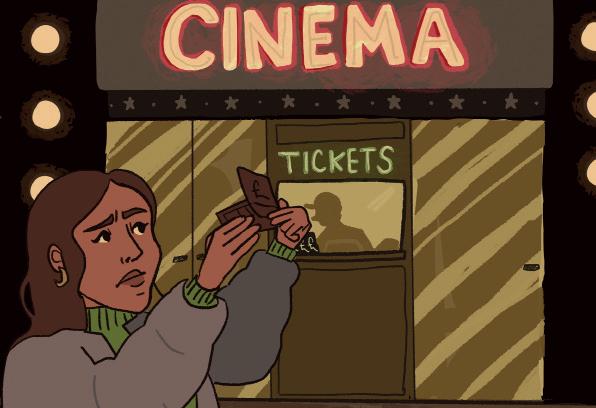 Deputy Indigo Editor, Melissa Rumbold, considers cinema accessibility for students
Deputy Indigo Editor, Melissa Rumbold, considers cinema accessibility for students
Asthe cost-of-living crisis continues to wreak havoc on Britain, it comes as no surprise that students have less and less money to spend on leisure activities. Although young people between the ages of 15 to 24 are the largest proportion of cinema audiences than any other age group, attendance has been declining since 2011. With no signs of stopping soon, how accessible is going to the cinema as a student? Do we still need the big screen in 2022?
As cinema tickets continue to rise, it’s no surprise that students are going less and less. In Durham, the Odeon charges £15 for a standard adult ticket, and is largely unaffordable for most students. Regular cinema trips are out of the question. As a final year student, I have only visited the Odeon a handful of times due to the highticket prices. It’s much cheaper competitor, Gala, is the first choice for most.
To better understand the accessibility of the big screen, I asked three final year Durham students, Laura, Anna, and Rosie, how frequently they attended the cinema. Anna told me, “It changes, depending on what’s on. Once every few months maybe”, whilst Laura admitted to attending “a lot less compared to at home. It’s really expensive in Durham and the Gala isn’t as good as the Odeon.” Rosie added “watching something on the big screen, especially in 4D” would convince her to pay the extra fee. However, all students admitted they very rarely visited the Odeon due to high ticket prices and the alternative Gala poses. Laura told me, “I think it depends on how much you want to go and see the film” and shared the view with others that only a highly anticipated or talked-about film would warrant the more expensive ticket. The declining attendance of young people is to be expected.
Whilst all students agreed that going to the Odeon was rare, Anna spoke about reduced ticket prices through Meerkat Movies, which offers a two for one deal at selected cinemas, including the Odeon. She told me “I’m more likely to go to the Odeon because of Meerkat Movies but if it wasn’t for that I wouldn’t go because it’s too expensive.” Similarly, Rosie told me she’d been to the Odeon just once in her time at Durham because she had a gift card and had already seen the stage version of the film. With deals and reduced prices, it seems cinemas like the Odeon can become accessible to young adult audiences. However, without these, it seems unlikely that big name cinemas
A research study conducted in 2019 on regaining younger cinema audiences asked young people what they think should be improved about the cinema experience. The study found that introducing a loyalty scheme and enhancing the experience through discounted food and activities nearby were the most popular answers. Sociability at a low cost seems to be the key selling point for young people. Without deals, it is unlikely that big chain cinemas will draw the student population.
As streaming giants like Netflix and Disney Plus continue to grow their audiences, the importance of cinema as part of the filmwatching experience seems to be declining. “We all rely on streaming services so much” Laura told me. “Disney Plus often has exclusive premieres that you can’t see in the cinema so there’s no need to go anyway.” She added, “it’s worth waiting a couple of months for it to come onto the streaming service.” Anna
noted, “people are comfortable in their own homes. Rather than paying high prices, you can rewatch films as many times as you’d like” and highlighted that Prime has the option to rent films at a low cost.
With the cost-of-living crisis showing no signs of stopping soon, streaming services seem to be the most accessible way for students to access films and new releases at a reduced price. Bigger theatres and clearer screens are sacrificed for cheaper tickets as the overall cinema experience becomes more of a treat and less of a regular leisure activity. Cinemas in Newcastle, such as Vue, offer lower prices and comfortable seats but alongside the added expense of travel.
For students in Durham, regular attendance at the Odeon is out of the question. With tight student budgets, pricey tickets, and eyewateringly expensive snacks, it seems staying in for the night with Netflix and snacks from Tesco is the student way.
Without deals, it is unlikely that big chain cinemas will draw the student population
It seems staying in for the night with Netflix and snacks from Tesco is the student way
style@palatinate.org.uk
Ourlove of the Y2K revival has finally met its match – the chilly autumn weather. Micro-mini skirts, cut-out crop tops and mesh dresses have all fallen in the face of mounting rain and the premonition of winter frosts. In this time of need, we have turned once again to our esteemed teen movie style icons for guidance.
Enter – the Frazzled English Woman Aesthetic.
A somewhat clunky label for an autumn style transition, this aesthetic draws on the vestiges of American obsession with ‘Cool Britannia’ left over from the late nineties, and the endearing neuroticism of protagonists like Bridget Jones and Kate Winslet’s Iris from The Holiday. The aesthetic draws on personality as much as style – rushing into a lecture late will be the perfect complement to the striped button-up you’ll be wearing as you do so. Our approaching annual viewing of Love Actually will become even more trendy (beyond its Christmassy significance) as we all unwittingly spend the rest of the year dressed up as Emma Thompson.
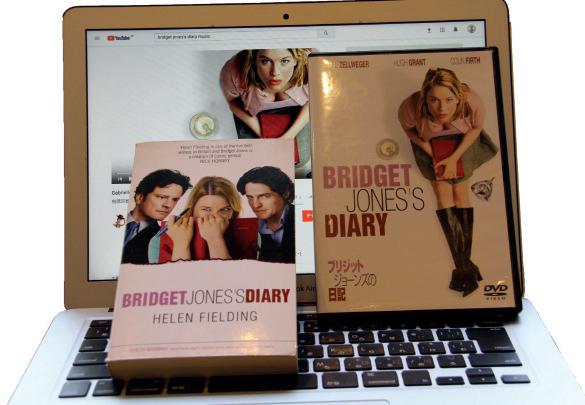
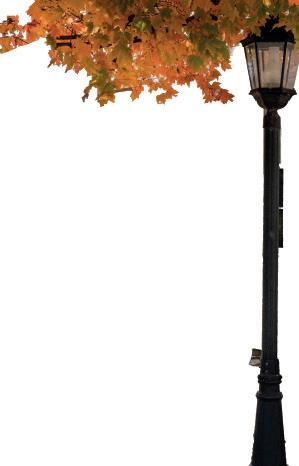
This aesthetic draws on the vestiges of American obsession with ‘Cool Brittania’ left over from the late nineties
Indeed, many Y2K trends do still nestle into this niche– skinny knitted scarves, jewel-toned overcoats and long, patterned skirts will surely reach a peak of popularity in the coming months. Pair these with a mustard-yellow beret and an overstuffed tote bag and you will be the darling of the Michaelmas Billy B. Much of our Y2K summer wardrobe can be tweaked to fit the aesthetic, with some artfully
awkward layering as clashing patterns and textures take centre stage – the keystone to the style is to appear as though you haven’t quite looked hard enough in the mirror before rushing out of the door.
The corporate-chic twist of the aesthetic represents a burgeoning pragmatism of the style – one simply doesn’t have the time to switch from work-wear to personal style, and as one becomes enmeshed with the other to create a loveable hodgepodge that screams grown-up manic pixie dream girl.
There is a class aspect to the frazzled English woman - in emulating the style we are also elevating the accompanying aesthetics of Agatouting kitchens and Harrods sofas, but these are easily remedied by the sheer number of Joules corduroy skirts and patterned M&S shirts displayed on the racks of charity shops. There is another issue of representation, as all these women are white, thin, and the epitome of the 2000’s beauty standard. This intersects with the above to show that yet again, the trend cycle popularises exclusive, aspirational aesthetics. However, this isn’t to say that not everyone can participate – in fact, on social media a wide range of people are showing off their turquoise tights and paperboy hats, which indicates that the democratisation of fashion through TikTok and Instagram is in part helping us break down these barriers.
A more liberating aspect of the style is romanticisation of the imperfect – using a claw clip to artfully style day-two hair, tissues stuffed up your sleeve
as you bravely battle any lingering Fresher’s Flu, and lip balm and blush as an alternative to the intricate Maddy Perez makeup of the summer. Altogether, women have much more important things to do instead of worrying about the minutiae of their appearance, and celebrating that (albeit in a niche microtrend) is a positive step in realistic fashion for all of us.
Another positive aspect of the style is its elevation of the working woman – they are frazzled not because they are running after children, or a hapless boyfriend, but rather because they have successful corporate careers that leave them simply too busy to tweeze their eyebrows and blot their lipstick. In dressing as a frazzled English woman we would actually dressing for the job we want – high-paying graduate starts with just the right amount of stress to leave us feeling important and (quite literally) effortlessly fashionable.
In truth, the frazzled English woman aesthetic will fit quite neatly into the already niche Durham style, and it will be a welcome compromise between looking cute and being prepared to brave the freezing trek to the Science Site. I, for one, am greatly looking forward to spotting all the Keira Knightley lookalikes that will soon populate our streets, in all their jeweltoned, hat-wearing glory.
They are frazzled not becuase they’re running after children, or a hapless boyfriend
food@palatinate.org.uk
the beating heart of Durham’s eclectic nightlife are the many college bars situated around campus. Ran by students, for students these bars provide a space for anything from a relaxed drink with a few friends to a full-blown rugby social initiation. However, it’s not just the atmosphere that brings students flocking in their hundreds, but the price of drinks – of which some claim to be the cheapest in the UK. What we don’t see, however, is the work that goes on to maintain and run these social hotspots - who is it that keeps our much-loved college bars afloat?
Tom manages a team of five, collectively known as Bar Comm, who each undertake a different role in the bar’s organisation – whether that be ordering stock, receiving deliveries or managing the bar’s income. As president, conversely, it’s Tom’s role to liaise with college senior management, problem solve when things don’t go to plan and “make sure everything comes together each night.” He claims that “the
rum and coke. The Bar President himself, however, recommends “a pint of Dougans doe,” Chad’s own ale brewed by Anarchy Brew Co. or “a double raspberry gin and lemon tonic.” Running the bar is, unsurprisingly, a big commitment – especially when completing a degree at the same time. This translates to anything from a few hours a week to even a few hours a day “if there’s a lot going on.” Moreover, an average day “can be anything from phone calls with engineers, in person meetings or otherwise trying to solve problems […] with various other staff members.”
As a Chad’s student myself, it will come as no surprise to you that Chad’s is my college bar of choice. However, arguably, it’s scenery and unbeatable prices make it one of the most popular in the eyes of many other Durham students too. I spoke to Tom Float, the President of Chad’s bar to find out what the role involves and what makes Chad’s bar one of the most popular college bars in Durham.
best thing about Chad’s bar is our stunningly attractive staff,” of which any Chad’s student can be a part of. On a humbler note, however, it’s the “prices, tunes and beautiful spaces” which in Tom’s eyes make St Chad’s bar the best.
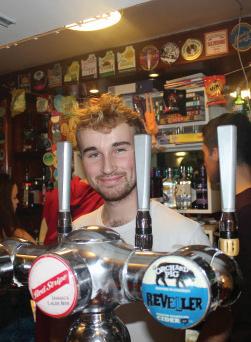

In terms of drinks, Chad’s bar is very good value for money with some pints costing as little as £2.20. My drink of choice is a double spiced
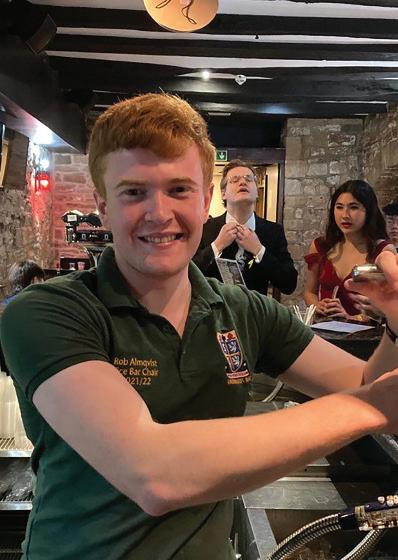
Arguably the beating heart of Durham’s eclectic nightlife are the many and varied college bars
These bars provide a space for anything from a relaxed drink with a few friends to a fullblown rugby initiaton
Another of Durham’s most popular college bars is Castle’s Undercroft Bar, affectionately known as ‘The Undie’. Ran by The Bar Chair, Rob Almqvist, The Undie prides itself on its regularly run events such as live music, pub quizzes and karaoke nights. Furthermore, it impressively bodes the oldest college drink in Durham – ‘Smenergy’.
Much like Tom, Rob’s primary role is to act as the “link between the College JCR members
and the College Office, in order to maximise the Bar’s value as a community resource for all members of the college.” Furthermore, Rob oversees that the “day to day operations of the bar run smoothly”, with his priorities being “providing a safe drinking environment,” “organising events,” and “introducing new stock.”
Rob, “obviously”, claims The Undie to be the best college bar in Durham and labels their best drink as being the “£3 Moretti.” However,
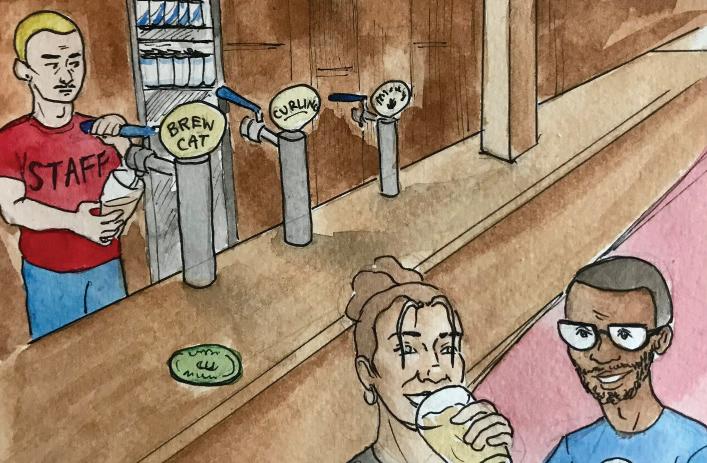
when he’s not drinking there, you can find him “drinking in The Swan, affectionally referred to by Castlemen as the extension of The Undie.”
In terms of gaining these elusive roles, Rob “applied to work on the bar committee at the end of first year,” like Tom, who also joined St Chad’s “bar committee as head cellarman in charge of managing stock and deliveries” in Epiphany term of his first year. Therefore, if you’re looking to run a college bar then it’s best to apply early as a fresher.
For me, and countless other students at Durham University, college bars provide a focal point for socialisation and enjoyment. Without these much-loved spaces and the work that goes into their upkeep, the student experience at Durham would be wildly different for many – therefore it’s to people like Tom and Rob to which we should be exceedingly grateful.
The Undie prides itself on it’s regularly run events such as live music, pub quizzes and karaoke nights
If you’re looking to run a college bar then it’s best to apply early as a fresher
Stage@palatinate.org.uk
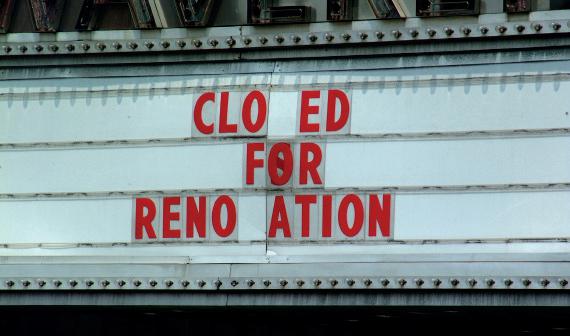
Theatrecan seamlessly blur the line between reality and fiction, however, sitting in an auditorium reminds us that what we are watching is only a story. What if our uniform seats and beautifully detailed proscenium arches were removed? What if fiction became reality and as an audience member you became so immersed in a show that when the lights come up, you forget what you witnessed was in fact only performance. Some stories with contemporary themes can benefit from this creative decision, it pushes boundaries and extracts levels of empathy from an audience not possible when in a traditional theatrical space. Now, are we getting too used to traditional theatre spaces that using a different venue would be too risky? Will out of the ordinary and odd venues always carry a barrier with them, alienating audiences? With a number of unique venues being praised by theatre watchers, I find it hard to believe that this is the case!
Taking a show and putting it in the physical location that it was written for should limit how much an audience has to suspend their disbelief. However, this is not always the case. I have found that one question most audience members ask themselves is how believable the performance was. As we are so used to the stereotypical stage configuration, a stage with a curtain, separating us from actors. It is ironic that this unnatural, voyeuristic layout is what we need to find a performance convincing rather than staging the play in the desired location chosen by the playwright. An anecdote from my grannie can help prove this! She had gone to watch Macbeth, which had been set in castle ruins, a setting obviously more appropriate for the performance. During the scene when it is announced Lady Macbeth has died and the line “The Queen, my lord, is dead”, is muttered, my grannie screamed out “Is she?”, of course thinking it was our late Queen Elizabeth! Unfortunately for the cast and crew, this reaction revealed that grannie was not fully immersed in the action, she remained in the real world, but this is only one story. There should be no reason to feel a play would be compromised by taking it out of the theatre. Some of the most popular shows
started by performing in the street. The famous Commedia dell’arte started performing out of a wagon as they travelled around Italy drawing huge crowds, and they were soon invited to perform by aristocracy. A traditional west-end stage is a well equipped theatre space, but daring to be bold and experiment can push audiences’ investment beyond what impressive lights and costumes can do. There are a number of surprising venues that have been used that have made audience members forget about real life and and it is clear when it comes to that all important question of was the story believable, there is only one clear answer! I thought I would tell you about the best venues I have heard of that have transformed the theatre experience!
To continue on the theme of Shakespeare, here are two more of his plays that were staged in two different modes
of transport! The first, on a plane! Easy jet passengers on a flight to Verona (I hope you know where this is going!), were surprised when a group of actors began to perform Romeo and Juliet mid-air! As in-flight entertainment goes, this one is pretty unforgettable and brilliantly layed the scene for hopefully holiday makers!
Next is The Tempest, performed on a boat! Being aboard a vessel whilst watching a show about a shipwreck must have been pretty stomach churning. A clever location that an audience member said, “left them feeling like one of the characters, aboard the ship”.
Next, we have Brave New World, adapted by David Rogers from Aldous Huxley’s novel, performed in a shopping centre! An admirable choice with plenty of challenges to face, the first being the noise levels. I have to mention, this shopping centre was kept open so to overcome the regular hustle and bustle of everyday dialogue, audience members were given headphones that relayed the actors lines. Actors would even enter on nearby escalators amongst shoppers! Both the hyper modern location and execution of the play elevated the story beyond what a theatre could do. Watchers claimed it was nauseating to experience the feelings associated with a doomed society!
Finally, a location right on our doorstep! Castle Theatre Company’s performance of Simon Stephens’ Punk Rock, set in a student common room, was performed in the Bishop’s dining room within the castle walls! Frighteningly, it made the story feel very real. Setting this play, which follows a bunch of sixth form students, and has a shocking ending, in this location gave the play a sense of reality, as an audience member it felt as if we sat in the common with the pupils, experiencing what they were going through!
Seeing that creative venues successfully affect the outcome of a play, should persuade all theatre makers out there to push boundaries, and take a chance! An overt aspect of a show that is not given enough credit for its power, the location of a show is everything. Theatre makers and audiences need to adapt and take advantage of what every individual venue can offer, it is crucial to the future of theatre!
indigo.interview@palatinate.org.uk
In Our Tech Soiety is a podcast produced and presented by Palatinate’s very own Paddy Stephens, focusing on how emerging technologies will change the way we live and experience the world, which has just begun its third season. In Our Tech Society can be found on Twitter, and wherever you get your podcasts.
What was the inspiration for starting In Our Tech Society?
I think that in the media currently there is a lot of fatalism surrounding new technologies – either robots are going to steal our jobs or AI is about to take over the world (both things won’t happen, by the way). We’ve got listeners in over 60 countries now, so hopefully I’m doing something right in opposing that narrative! The podcast is a space to discuss how tech will shift the way we exist in the world – it used to be called Ethics for a Changing World, but I found that you inevitably end up talking about law, or politics, so I decided to change the name.
the long-term future 100 or 1000 years from now and eliminating massive risks to humanity like asteroids, nuclear wars, pandemic, all super cool things to happen to future generations! It’s a big part of movements like Effective Altruism, which has gained a lot of visibility in recent years following the pandemic but has had some fair criticism levelled at it. For instance, pitting important issues against one another in an attempt to determine which would generate more ‘utility’ if solved first. It would be great to get him on the show and ask him about those criticisms directly.
interviewing?
I try to avoid being like Jeremy Paxman! The podcast is about making thorny issues as accessible as possible, and some of the people I interview are pretty inexperienced, so it feels cruel to attempt to press them (although, I don’t mind a little with some of the more politics-focused guests). Sometimes the topics under discussion are also very technical, so I find that it’s best to let the guests explain themselves in their own words and in their own times rather than trying to interrupt. Having said that, it can make the
episodes quite hard to edit, but our most listened-to episode is an hour and fifteen minutes long, so maybe people want more longform content.
What would you say has been the biggest challenge you’ve found when developing In Our Tech Society?
I think the real challenge is defining what the thing is that you’re producing – establishing a real identity for your podcast is something that’s much more difficult than it sounds, and In Our Tech Society has gone through a couple of iterations before I found what works best for me. In the podcast space, you’re not going to blow up overnight, so I think the most important thing is to be proud of the stuff you’re producing rather than doing it for attention – people will simply listen to something else if that passion and authenticity isn’t
What are the dream guests you’d have on the podcast?
There’s a philosopher called William MacAskill who pushes a view called long-termism –it’s basically the idea that we should prioritising improving
If
had the time to develop another podcast, what would the focus be?
I’d want to focus on Chinese politics – I think China is something that is massively and commonly misunderstood by Western media, as well as a hugely complex topic, and I think that’s something that could really be unpacked in a dedicated podcast. If only I had the time!
In Our Tech Society primarily an interview format - what is your own personal style of
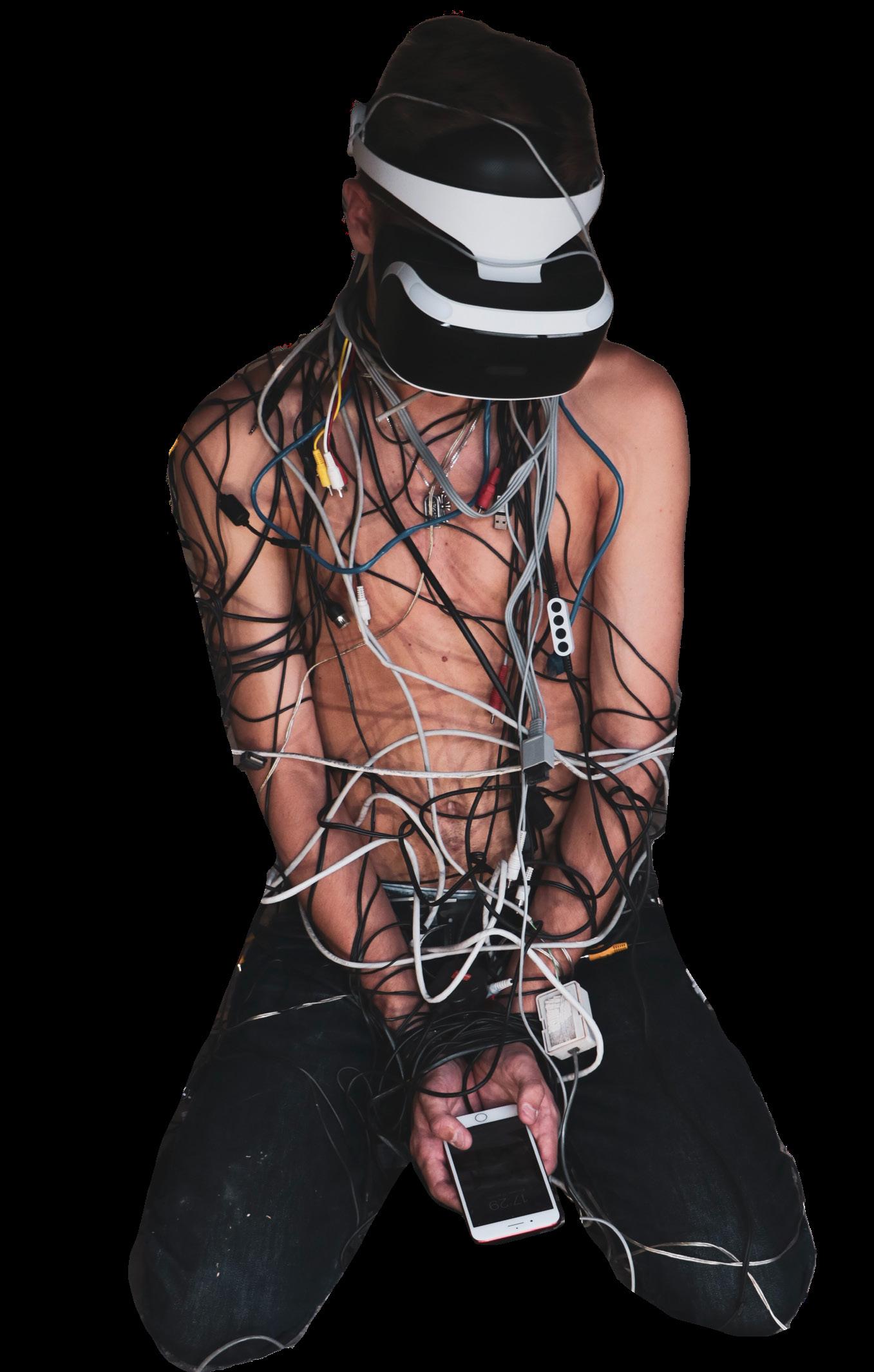
And finally, for the Daily Mailstyle scoop, can you confirm Season 4?
I’m not sure I can! I think Season 3 might just run on forever, or until I run out on people willing to be interviewed. But we’re on a pretty good run of content at the moment, so I’ll keep producing episodes until people get sick of them, I think!
I think that in the media currently there is a lot of fatalism surrounding new technologies – either robots are going to steal our jobs or AI is about to take over the world
I think the real challenge is defining what the thing is that you’re producing – establishing a real identity for your podcast is something that’s much more difficult than it sounds
you
The podcast is about making thorny issues as accessible as possible
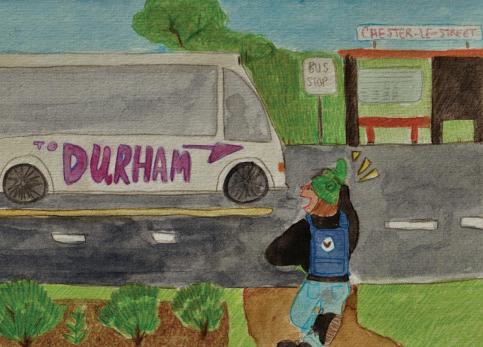
WhenI was in my second year at Durham, I lived in a four-person house in the Viaduct area. It was, to be generous, exactly what you’d imagine a student house to be like. There was a freezer on the landing (it didn’t fit in the kitchen) with a door that didn’t close properly; there was a tiny bathroom with a shower in the living room (which, incidentally, was also in the basement since the original living room had been converted into a bedroom); and, because no student house would be complete without one, there was a tiny box room with a single bed and barely enough space for a desk (and yes, I drew the short straw).
Back in 2019, rent wasn’t cheap, but it was certainly cheaper than the extortionate prices in Durham today. Likewise, finding a decent property wasn’t easy, but we didn’t have to queue overnight like some students did this year. Despite all the stress that comes with securing a rental property and despite the frequently sub-par accommodation standards (black mould, anyone?), if you’d asked me back then whether I would consider living outside of the city, the answer would have been a resounding no.
Especially as an undergraduate, the fear of being unable to experience university fully was a strong motivating force to stay in Durham. But with rental prices increasing year-on-year and the university ploughing ahead with its reckless expansions, more students may have to look for cheaper properties away from the city. This is outrageous, of course – Durham University has played a central role in exacerbating the housing crisis by building new colleges and accepting more students than it reasonably has space for – but until radical change is enacted, it is, unfortunately, the reality we face.
I’m now in my fourth year, and my situation is very different: I live in Bowburn, a village approximately two miles south of Durham city, in a newly built property shared with two other people. We have a garden, fully functioning kitchen appliances, a garage and a parking space at the back of the house. Living here has its pros and cons – just as living in Durham does – but my experience has been largely positive.
The main advantage is that rent is cheaper; you get more for less. When our friends come
over, most of them comment that it “doesn’t feel like a student house”, which is to say: it hasn’t suffered from years of built-up dirt and grime, it’s well-maintained, spacious and modern. Our neighbours are friendly; they aren’t students, of course, but they’re happy for us to have house parties if we tell them in advance. In this respect, we’ve been lucky.
One of the biggest downsides is that you can’t rock out of bed at eight forty-five in the morning and make it to your nine a.m. Nor is it a five-minute walk to the clubs if your friends persuade you to go on an impromptu night out. That said, the bus services are reliable, and the university offers a subsidised student ticket that allows you to travel within the Durham area for £1 a day. It isn’t unusual at campus universities like Lancaster and York for students to have to get the bus if they want to go on a night out, which is easy to forget in a city university like Durham, where you can get from one side to the other on foot.
Living outside of Durham is common for post-graduates, who often rent in places like Bowburn, Langley Moor and Brandon. The composition of my current house reflects this: two of us are post-grads, while Holly, my third housemate, is in her second year. Like many undergraduates, Holly was unaware of how competitive the housing situation is in Durham. “I didn’t realise how quickly people sign for houses and how scarce they are,” she explains, “which left me in a position where I had to look outside the city to find something affordable.”
Increasingly, students are being priced out of the city, and so far, Durham University has done little to help other than set up an accommodation helpline. This is unacceptable. However, I think it’s important to share my experience with others who may not have considered renting elsewhere. If the housing crisis has made you feel like you will have to sleep at the Billy B next year, remember that there are options outside of Durham! Living a bit further away isn’t the social death sentence I feared it might be; it just means I have to factor a ten-minute bus journey into my plans.
Living a bit further away just means I have to factor a ten minute bus journey into my plans
music@palatinate.org.uk
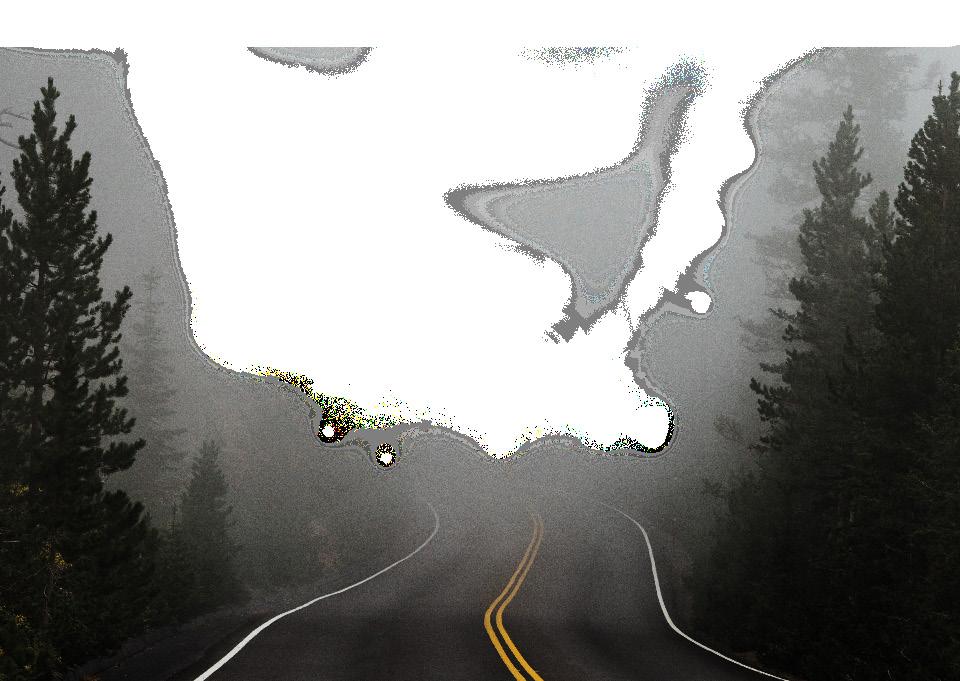
Fouryears after the release of Tranquility Base & Hotel Casino, Arctic Monkeys are back with the release of their latest album. Nostalgic and sentimental, The Car is a vulnerable love letter to the fans, waving goodbye to their old styles with a James Bondesque mystique accompanied by hints of The Last Shadow Puppets. This album is certainly one which looks ahead into Arctic Monkeys’ new artistic direction, as a more refined, soft rock collection of songs, yet features a key theme of insecurity surrounding this.
Opening with the first single, ‘There’d Better Be A Mirrorball’ offers a somewhat jazzy, yet heartfelt outlook on the end of a relationship, or perhaps past eras of the band, as Alex Turner tells himself “Don’t get emotional, that ain’t like you.” The wistful strings present a new sense of maturity with their music which we can clearly hear throughout the rest of the album. Contrasting with the mellow ‘Mirrorball’, the funky ‘I Ain’t Quite Where I Think I Am’ is one of The Car’s more upbeat songs, with similar dreamy strings that cut into the groovy wah guitar. This single addresses the band’s disillusionment with the fame that
acknowledge how they’ve changed and how their “idea of a good time” now consists of “village coffee mornings.” The band are okay with the evolution of their style into smooth rock, and this album is a tribute to that. ‘Jet Skis on the Moat’ is a soulful, yet captivating look at childhood nostalgia and the fading friendships that come with growing up. Slowpaced with a sad piano accompaniment, Turner asks fans if they are happy with the changes that have been made to their music, if they are “happy to sit there while the paint job dries.”
in the meandering strings and gritty riff that accompany Turner’s dreamy falsetto in ‘Hello You’, in which they are “dragging out a long goodbye” to the band’s past.
Standing out from the rest of the album due to its acoustic guitar accompaniment, ‘Mr Schwartz’ is a sobering penultimate track, claiming how Turner is “staying strong for the crew” and therefore keeping it together for the rest of the band. This mysterious figure of Mr Schwartz is darkened by the string accompaniment and rhythmic percussion and opens itself up for interpretation. The finale of the album, ‘Perfect Sense’, offers a beautiful closure with its swelling string arrangement, giving the feel of a melancholy farewell to the fans (for now), “if that’s what it takes to say goodnight, then that’s what it takes.” In closing the album here, they put their old style, their “invincible streak” to an end.
This sombre theme continues into ‘Body Paint’, a heartbreak love affair anthem featuring
The Car is definitely a change from the rocky and wild Arctic Monkeys we are used to hearing, especially in past albums such as Favourite Worst Nightmare and even AM, but we can welcome and embrace their newfound soulfulness in line with Tranquility Base &
They acknowledge how they’ve changed and how their “idea of a good time” now consists of “village coffee mornings.”
